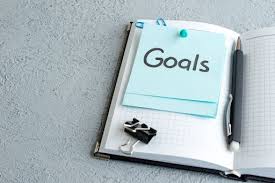Employee self-evaluations can assist team members in identifying their strengths and limitations and charting a course for professional development. As part of their annual or quarterly review process, many businesses require employees to perform self-evaluations. Employees can use these self-assessments to reflect on their strengths and skills, as well as what they’ve accomplished during their time with your organization. Requesting that staff review their efforts allows them to identify areas where they may need to improve. You would read about the following subtopics in this article: how I could improve self-assessment examples, customer service self-evaluation sample answers, and how can you evaluate yourself? as well as a sample self-evaluation essay.
Here’s some background on why self-evaluations are so helpful, as well as some tips and self-evaluation examples to help you through your review process.
What is a Self-Evaluation?
A self-evaluation, sometimes known as a self-assessment, is part of an employee performance evaluation. It allows you to evaluate your contributions to the company, areas where you excel, and places where you may improve your performance. This portion of your performance review allows you to identify areas for growth, recognize your achievements, and figure out how to match your performance with your manager’s expectations. Most companies require employees to do self-evaluations once a year.
Importance of Self Evaluation
A self-evaluation has multiple benefits for both individuals and businesses.
#1. Give your staff a voice.
Open communication between management and staff is a significant benefit of the self-assessment. This opportunity provides a platform for team members to express themselves and be heard. Opening this communication channel can result in greater trust and collaboration between supervisors and associates.
#2. Determine performance gaps
It is not always easy for a company to determine which areas of the job are lacking and need improvement. Allowing employees to assess their own performance helps discover areas that require additional scrutiny. Some underlying concerns may go overlooked if this opportunity is not available.
#3. Involve team members
When team member finishes their self-assessment, they become part of the company’s collaborative performance. A sense of being an important part of a company can improve an employee’s value as an important component in the workplace and contribute to improved productivity.
Examples of Self Evaluation
Now that you have some areas to look at for your evaluation, you may be wondering how to include them in your self-evaluation. To get you started, here are eight self-evaluation categories and examples, each with an achievement and an area for improvement.
#1. Successes
Achievement
- I’ve created, launched, and managed profitable social media campaigns. My marketing strategy has raised the company’s website traffic by 25% in the last two months.
Area of improvement
- I am aware that the most recent social media campaign I conducted did not result in the intended boost in traffic. However, I plan to perform market research to better focus my long-term strategy on potential clients.
#2. Communication skills
Achievement
- I use team communication tools to maintain open channels of contact with my coworkers and managers. I also make it a point to keep my team members up to date on the status of my work on a shared project.
Area of improvement
- I can get caught up in my work and neglect to keep others informed of my progress. I’ve been trying to be more conscious about posting updates as I finish projects so that everyone is on the same page and not wondering about the state of my work.
#3. Creativity
Achievement
- I am always bringing new ideas to my team. I make it a point to have at least two ideas to share during our daily brainstorming session. This strategy keeps me thinking of new, yet relevant, ways to move this organization forward.
Area of improvement
- I constantly come up with concepts that I want to share. But I have my doubts about myself and how my ideas compare to those of my team’s more experienced members. I’d like to improve my self-assurance in my ideas and the benefits they can offer to our organization.
#4. Delegating
Achievement
- While I prefer taking on my own tasks, I recognize that there are occasions when I need to seek assistance from a coworker. When I find myself with too much on my plate, I try to seek the help of another member to ensure that I am making time for my priorities.
Area of improvement
- I find it difficult to separate myself from a task on my list and delegate it to another team member. When I initially receive assignments, I want to change my emphasis to prioritizing my duties so that I can immediately find any items that I may delegate to other team members.
#5. Productivity
Achievement
- I make an effort to increase my productivity at work. I’ve been using the Getting Things Done method for the past three months to help me organize, prioritize, and efficiently complete my tasks.
Area of improvement
- While I am meticulous in outlining and prioritizing my tasks, I usually struggle to complete them on time, leaving me with extra work to do the following day. To improve my productivity, I’m going to make a plan for each day that outlines how much time I should devote to each activity.
#6. Time management
Achievement
- I’ve done well at staying on top of activities and projects that demand me to complete work within a specific time range. To avoid missing a deadline, I keep an ordered planner and to-do list, as well as set calendar reminders.
Area of improvement
- I occasionally find myself slipping behind on assignments. To keep on track, I started calendar blocking in my planner and devised a comprehensive strategy for when I needed to complete one task and start the next.
#7. Teamwork
Achievement
- I make an effort to involve my team members in all aspects of collaborative projects and to provide them with the opportunity to voice their ideas and concerns. Before beginning any team project, I collect each participant’s contact information and set up a channel for us to communicate in a secure environment.
Area of improvement
- Because I am shy, it can be difficult for me to contribute on the same level as my teammates. I’m trying to contribute more to these initiatives by getting to know my coworkers individually so that I feel comfortable participating in group efforts.
#8. Problem-solving
Achievement
- Before starting a task or project, I often use my planning skills to look ahead. This allows me to be proactive in identifying and preparing for possible pitfalls. I’ve developed strategic methods and procedures for dealing with difficulties as they arise, allowing me to respond quickly.
Area of improvement
- When confronted with an issue or working under duress, I tend to become overwhelmed. I spoke with my coworkers to learn about their problem-solving strategies. This way, I have problem-solving choices available to me at all times.
Self-Evaluation Sample Essay
Nothing is more intimidating to a student or working professional than having to complete a sample self-evaluation essay. This particular composition is a critical self-analysis that encourages individuals to look inward and see if they can recognize their own strengths and weaknesses. Reviewing yourself as part of a school or work evaluation can be difficult, but it is a problem that can be overcome if you know how to make the process easier.
It’s understandable that most people are terrified by the prospect of evaluating themselves because they are used to having others evaluate their work. Of course, there is always the possibility that you will succumb to the temptation to embellish specific details in the composition, but this may jeopardize your reputation and integrity.
How Do You Evaluate Your Self?
Have you ever struggled in the same way with your knowledge-testing skills? If so, you’ve come to the correct place. I’ve developed best practices for evaluating yourself and your productivity.
#1. Take tests on a regular basis.
You should conduct a self-evaluation of whether you are a fresh learner or an expert. Test yourself on a daily or weekly basis. But do it on a regular basis. You can simply evaluate yourself by performing a brief task related to your skill. Alternatively, Google your topic and respond to the most frequently asked questions. The latter is very intriguing; give it a shot.
#2. Keep track of your studying habits
We all have different learning methods, much like our personalities. What is the next assessment if we fail any of our assessments? Most of us make plans to study more diligently the next time. Try learning in a new way this time. Changing your study routine might have a significant impact on your grades. Study wisely, not hard!
#3. Take online exams
We’ve all grown accustomed to online learning as a result of the pandemic. This e-learning provides us with several new opportunities to study and test. Use Google to find websites that offer online self-assessments for learners. Complete all of the questions. Get your performance evaluation sheet and check your score. You’ll have a better understanding of where you need to put in more effort.
#4. Make an assessment of yourself
You learned something through watching a video or reading a blog. Exit the learning period and evaluate your performance. Try to do the last activity you learned about on your own. If you passed the test, congrats! However, if you fail, highlight the spots that cause you to lose the game. Pay attention to these points the next time you watch a tutorial.
#5. Explain your knowledge to others.
It can be tough to teach people what you have learned. But this is the true test. You can respond to Quora questions about your topic. Every second, hundred of queries are asked. It is even better if you have someone in your social circle. If they get stuck on a question, assist them. You will grasp and memorize the concept better if you teach others.
#6. Take some time off
Do not be discouraged if you fail to evaluate your performance. Instead, give yourself a rest. Perhaps you are enthusiastic about studying, yet your mind requires rest. Do not put too much pressure on yourself to become an expert in a matter of days. The learning process will take some time. Give yourself at least 12 hours between sessions. Then, start learning with a clean slate.
Customer Service Self-Evaluation Sample Answers
Here are some key questions and statements, as well as potential responses, to help managers and staff navigate a customer service self-evaluation:
- Please describe your main tasks.
It is usually beneficial to learn about your employees’ understanding of their duties.
- What additional tasks do you regularly carry out?
Your employee may be working on other tasks that you are not aware of or acknowledging. With this inquiry, you want to build up trust.
- What changes do you think the department should make?
Even as a manager, there are some things you may not be aware of or observe. Your staff may have some excellent suggestions. This question also reveals areas where the employee believes things could be improved.
- Which customer contact have you been most proud of since our last meeting?
This is an excellent opportunity for the employee to demonstrate their ideas for providing excellent customer service.
- What one interaction with customers do you wish you could change in retrospect?
As an employer, you’d like to know what the employee believes they could have done better while dealing with customers.
- What do you believe your greatest strengths and weaknesses are?
This style of inquiry encourages your employee to begin with the positive and progress to areas for improvement.
How Could I Improve Self-Assessment Examples
Despite its significance, writing a self-evaluation is a difficult task. Analyzing oneself can be extremely challenging, especially when that analysis is given to a supervisor for assessment. If you’re stuck, these five pointers can help you learn how to write a self-assessment.
#1. Be proud
One of the primary goals of the self-evaluation is to showcase your achievements and recall key moments in your professional progress. An excellent self-evaluation should emphasize specific tasks and projects that showcase your greatest work. Employees should emphasize the influence such successes have had on the entire organization while describing them to demonstrate their value to the company.
#2. Be open and critical.
Self-evaluations aren’t only for bragging rights. You should also evaluate the moments when you fell short. Being truthful entails pointing up flaws that can be corrected or prior failures that taught you a useful lesson. Recognizing your own weaknesses is important for demonstrating your ability to learn and grow.
#3. Strive for continuous improvement.
It is essential never to get stagnant during self-evaluations; humans are continuously learning and changing (this is why adaptable, resilient teams are so important and common). Whether you had a terrific year or fell short of your own goals, it is essential to remain devoted to self-improvement and learning. Taking a moment during a self-evaluation to identify your goals and objectives for the future year shows that you are not content to settle.
#4. Keep track of your achievements.
It is extremely useful to provide hard statistics to demonstrate what you have done during the year. Employees and supervisors may have a general idea of how you performed, but having precise numbers to back up any assertion improves the validity of your self-evaluation.
#5. Maintain a professional demeanor.
When writing self-evaluations, you should always be professional. This includes refraining from criticizing your employer for poor leadership or coworkers for making your life more unpleasant. It also implies avoiding bragging about a coworker or manager you admire. Professionalism is essential when offering either critical or favorable feedback. Being professional entails treating the appraisal as seriously as you would any other significant project that crosses your desk.
What Does Self-Evaluation Mean?
Simply expressed, self-evaluation is the ability to assess yourself in order to determine how far you have come. Employees must assess their own abilities and evaluate their own strengths and limitations. It puts people, to a considerable extent, in charge of their own growth.
What Are the 4 Core Self-Evaluations?
The notion of “core self-evaluation” (CSE) covers four personality dimensions: self-esteem, self-efficacy, locus of control, and emotional stability.
How Do You Answer Self-Evaluation?
Be explicit and descriptive of your work’s positive and negative aspects. You should always analyze the positive and negative aspects of your performance in each of the areas. Determine where you exceeded expectations, where you met them, and where and how you may improve further.
What Is the Main Purpose of Self-Evaluation?
You become an active participant in your own evaluation when you self-assess. Your participation allows you to honestly analyze your strengths as well as areas in which you need to improve. You will then be able to contribute more productively at your supervisor’s evaluation meeting.
What Are 3 Areas of Improvement?
Employees’ areas for improvement:
- Time management.
- Organization.
- Interpersonal communication.
How Do You Write an Overall Self-Performance Summary?
- Make a list of your best qualities.
- Consider your achievements.
- Consider your mistakes.
- Close with prospects for advancement.
What Are the Six Steps to Self-Evaluation?
Six-step process of self-evaluation (SSE):
- Make well-being a priority.
- Collect evidence (data gathering)
- Analyze and make decisions.
- Reports and improvement plans should be written and shared.
- Implement a plan for improvement.
- Monitor actions and evaluate their impact
What Are the Three Elements of Self-Evaluation?
- Self-esteem.
- Self-efficacy.
- Locus of control.
What Are 5 Purposes and Reasons to Evaluate?
Reasons Why Evaluation Is Important for Your Project:
- You discover how to optimize for success and the story behind the results.
- The evaluation process lays the door for project improvements.
- Every voice is important.
- There is no such thing as a one-size-fits-all solution.
- It is possible to conduct your own evaluation.
Conclusion
Self-evaluations as a way to engage with your employer and your work in a way that will advance your career. Accept self-evaluations and practice writing them, and you’ll find that they’re more productive and more fun than cleaning the office microwave.
Related Articles
- PLAN OF IMPROVEMENT: What It Is, Sample and Guide
- INTERPERSONAL SKILLS: DEFINITION, Examples, All you need & how to improve (+free PDF’s)
- SELF AWARENESS: How to Identify, Build up Skills and Benefits
- Good Customer Service: Best improvement strategies (+free samples)
- HOW TO BE A GOOD MENTOR: Best Ways, Qualities and Roles






